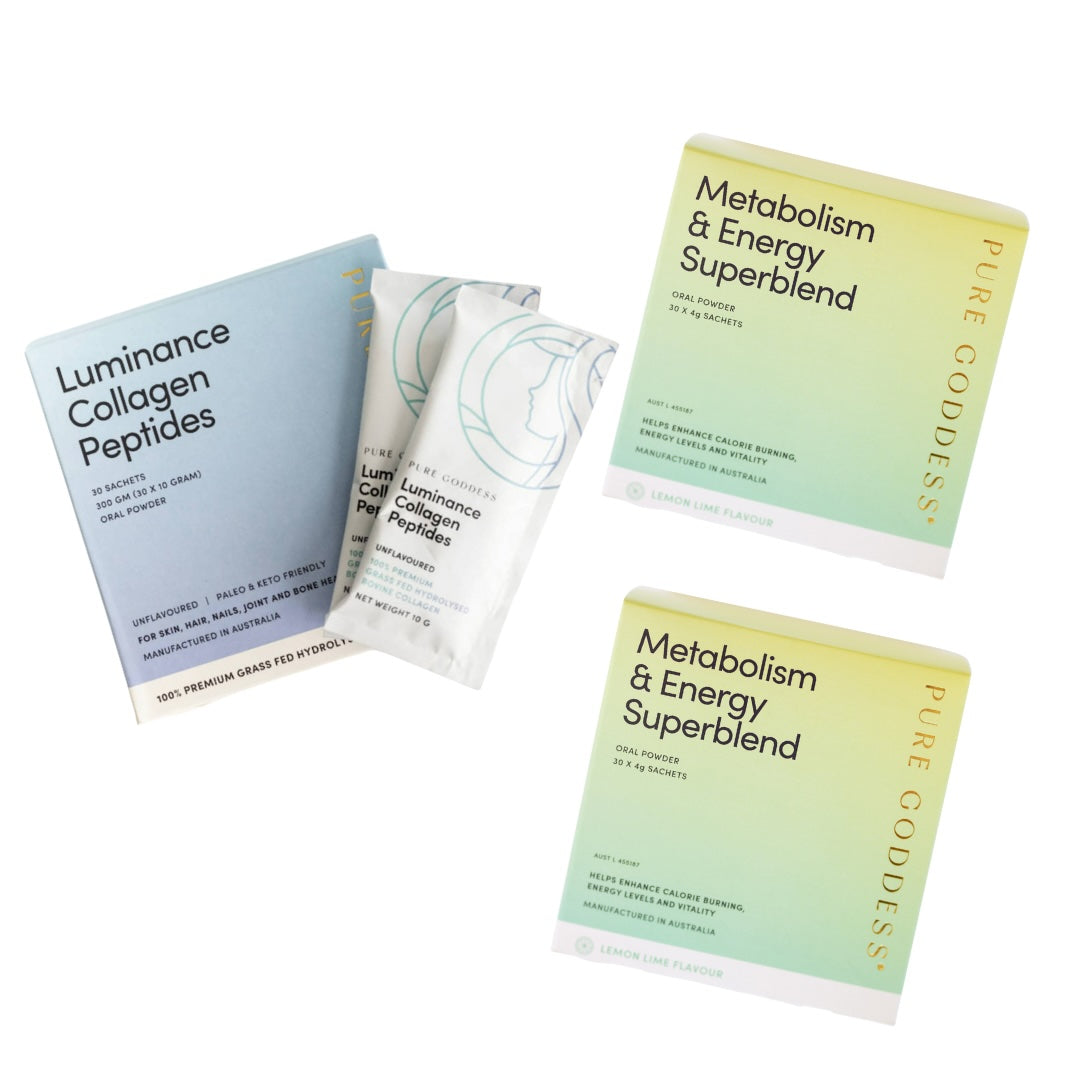
IBS Symptoms and What Foods to Avoid: A Guide to Easier Digestion
If you’ve ever experienced unpredictable digestive discomfort, chances are you’re familiar with Irritable Bowel Syndrome (IBS) or know someone who is. IBS is a common digestive disorder that affects how your gut works, causing symptoms that can be frustrating and uncomfortable.
Understanding IBS symptoms and learning which foods to avoid can make a world of difference in managing this condition.
This guide will help you identify common IBS symptoms and provide practical tips on foods that often trigger discomfort, so you can take control and feel more balanced in your digestion.
What Is IBS?
IBS is a functional gastrointestinal disorder, meaning the gut looks normal but doesn’t work as it should. It’s characterised by symptoms like stomach cramps, bloating, diarrhoea, constipation, or a mix of these.
IBS is often triggered by stress, hormones, diet, or changes in gut bacteria.
It’s important to remember that IBS is highly individual - what affects one person may not affect another. The key is learning to listen to your body and identify your unique triggers.
Common Symptoms of IBS
Symptoms can range from mild to severe and often fluctuate over time. Common signs include:
-
Abdominal Pain and Cramping: Usually relieved by bowel movements but can vary in intensity.
-
Bloating and Gas: Feeling of fullness or swelling in the abdomen.
-
Diarrhoea or Loose Stools: Frequent, urgent bowel movements.
-
Constipation: Difficulty passing stools or infrequent bowel movements.
-
Alternating Constipation and Diarrhoea: Some people experience both in cycles.
-
Mucus in Stool: Whitish mucus may appear during bowel movements.
-
Urgency or Incomplete Evacuation: Feeling an immediate need to go or that you haven’t finished.
If these symptoms sound familiar, working with a healthcare professional can help rule out other conditions and develop a management plan.
Why Diet Matters in IBS
Food plays a significant role in triggering IBS symptoms for many people. Certain foods can irritate the gut, cause fermentation by gut bacteria, or increase gut sensitivity.
Since IBS affects everyone differently, keeping a food journal to track what you eat and how you feel can be invaluable. It helps spot patterns and avoid foods that consistently cause discomfort.
Top Foods to Avoid if You Have IBS
While individual reactions vary, the following foods are most commonly reported to worsen IBS symptoms. Limiting or avoiding these can often reduce flare-ups.
1. High-FODMAP Foods
FODMAPs (Fermentable Oligosaccharides, Disaccharides, Monosaccharides And Polyols) are certain types of fermentable carbs that can cause gas and bloating.
Common high-FODMAP foods to watch out for include:
-
Onions and garlic (often hidden in sauces and dressings)
-
Wheat, rye, barley (found in breads and cereals)
-
Certain fruits like apples, pears, cherries, watermelon
-
Legumes such as lentils, chickpeas, and baked beans
-
Dairy products with lactose like milk, soft cheese, and ice cream
-
Artificial sweeteners like sorbitol and mannitol
Many people with IBS find relief by following a low-FODMAP diet, which means reducing these foods especially during symptom flare-ups.
2. Fatty and Fried Foods
Heavy, greasy foods slow digestion and can cause cramping and diarrhoea in sensitive guts. Foods like fried chicken, pizza, creamy sauces, or fast food often trigger symptoms.
Choosing lighter cooking methods like grilling, steaming, or baking and incorporating healthy fats from olive oil, avocado, or nuts is better tolerated.
3. Caffeine and Alcohol
Both caffeine and alcohol stimulate the gut and can increase diarrhoea, urgency, and discomfort.
Limiting coffee, tea, energy drinks, and alcohol, especially during flare-ups, often eases symptoms and lets the gut settle.
4. Carbonated Drinks
Fizz from sodas or sparkling waters can cause bloating and gas, aggravating IBS symptoms.
Opt for still water, herbal teas, or non-carbonated drinks to keep your digestion calm.
5. Spicy Foods
Spices like chili, black pepper, and hot sauces may worsen abdominal pain and diarrhoea for some people.
While they add flavour, it’s wise to gauge your tolerance and reduce or avoid spicy foods if they trigger symptoms.

Managing IBS Symptoms
Managing IBS symptoms often requires a personalised approach because triggers and severity vary widely between individuals. One of the most effective ways to reduce symptoms is through diet management.
Many people find relief by following a low-FODMAP diet, which involves reducing fermentable carbs that cause gas and bloating. It’s helpful to work with a healthcare professional or dietitian to identify your specific food triggers and develop a sustainable eating plan that supports gut comfort while maintaining nutritional balance.
Stress and mental wellbeing also play a crucial role in IBS management. The gut and brain are closely connected, and emotional stress can worsen digestive symptoms. Incorporating stress-reduction techniques such as meditation, gentle yoga, or breathing exercises into your daily routine can help calm the nervous system and soothe the gut. Regular physical activity is also beneficial for regulating digestion and improving overall wellbeing.
It’s important to stay hydrated and include the right type of fibre in your diet. Soluble fibre, found in foods like oats, carrots, and bananas, can help manage constipation and support a healthy gut lining, while insoluble fibre may sometimes aggravate symptoms and should be introduced cautiously.
Probiotics, either through supplements or fermented foods like kimchi and kefir, may help restore balance to the gut microbiome, but their effectiveness can vary from person to person. Remember, patience and gradual adjustments are key to finding what works best for your unique digestive health.
Tips for Managing IBS Through Diet
A low FODMAP diet is a temporary eating plan designed to reduce certain types of fermentable carbohydrates found in foods, which some people’s digestive systems have trouble absorbing.
By limiting foods high in these fermentable sugars, such as onions, garlic, beans, and some fruits, the diet helps reduce common symptoms like bloating, gas, diarrhea, and stomach pain, especially for people with irritable bowel syndrome (IBS).
After an initial elimination phase, foods are gradually reintroduced under dietitian guidance to identify specific triggers, allowing a more personalized and balanced diet while managing symptoms effectively.
-
Start an Elimination Diet: With a healthcare professional’s guidance, eliminate top irritants and slowly reintroduce them to identify triggers.
-
Eat Smaller, Regular Meals: Large meals can overload your digestive system. Frequent smaller meals reduce stress on the gut.
-
Stay Hydrated: Water supports digestion and helps prevent constipation.
-
Include Soluble Fibre: Foods like oats, carrots, and bananas can soothe the gut without causing irritation.
-
Keep Stress in Check: Stress can worsen IBS symptoms, so practices like meditation, yoga, or gentle exercise help.
-
Consider Probiotics: Supplements or probiotic-rich foods may rebalance your gut flora, but effects are individual.

When to Seek Help
If your IBS symptoms are severe, worsening, or accompanied by weight loss, blood in stools, or persistent pain, it’s important to consult a healthcare provider. They can help rule out other conditions like inflammatory bowel disease or infections and create an appropriate treatment plan.
Final Thoughts
IBS is a complex condition that requires understanding and patience. Knowing your symptoms and what foods to avoid sets you up for better digestive comfort and improved quality of life. While it might feel overwhelming at first, small, consistent changes in your diet and lifestyle can help you find a balance that allows you to enjoy life more fully.





2 comments
Thank-you for your information
This is all me when I don’t eat correctly
I was on IBS capsules from my Chemist.
I found them to be a great help.But I haven’t been on them for 2 months and this week I’ve had flare up.
I will go back on IBS. I will have a search for a dietitian
I have found a list of Eat and Don’t Eat, this has been very helpful
But I’m looking for a diet to follow.
Ros
23 Nov 2025
Ros
Thankyou for information on IBS hope it helps bit of pain in bladder as well appreciate advise thanking you
Pamela Brooks
Leave a comment
This site is protected by hCaptcha and the hCaptcha Privacy Policy and Terms of Service apply.